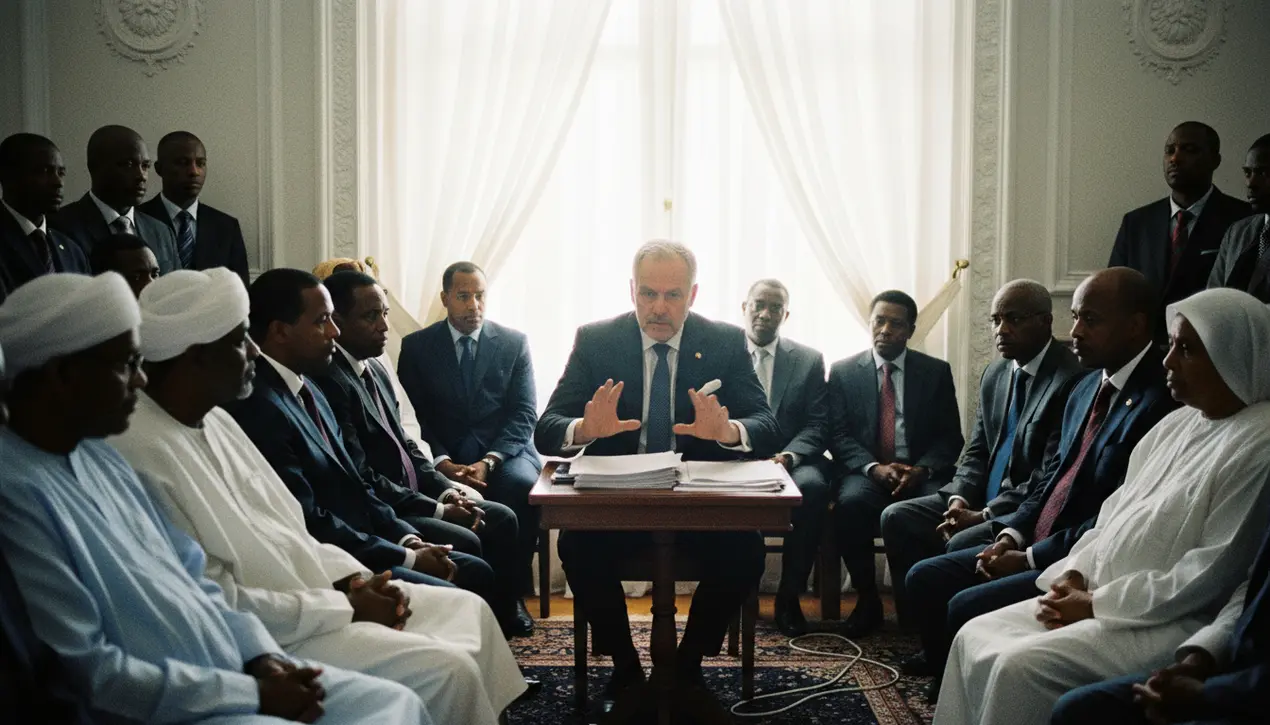
PoliticsdiplomacyPeace Talks and Treaties
Trump Envoy Denies Bias in Sudan Peace Negotiations.
OL
Oliver Scott
3 hours ago7 min read3 comments
The Trump administration's special envoy to Sudan has publicly rejected allegations of partiality in the delicate peace negotiations aimed at halting a devastating conflict that has, to date, forcibly displaced a staggering 12 million people—a figure that represents one of the most severe humanitarian catastrophes of our generation. This denial comes not in a vacuum but against a backdrop of intensifying geopolitical jockeying, where the strategic interests of regional powers like Egypt, the UAE, and Saudi Arabia collide with the humanitarian imperative, creating a diplomatic minefield where every move is scrutinized for hidden agendas.The envoy’s rebuttal, while firm, does little to quell the underlying suspicions that have plagued these talks from their inception; the very appointment of a high-profile figure linked to a previous US administration inherently carries political baggage, influencing stakeholder perceptions and potentially undermining the perceived neutrality essential for any credible mediation effort. Analysts monitoring the situation point to a grim risk calculus: a prolonged stalemate in negotiations significantly elevates the probability of total state collapse, a scenario that would not only unleash further mass atrocities within Sudan's borders but also create a power vacuum ripe for exploitation by transnational terrorist networks and trigger destabilizing refugee flows across already fragile neighboring states like Chad and South Sudan.The historical precedent here is chillingly clear; one need only examine the international community's failure to effectively mediate in the Rwandan genocide or the protracted Syrian civil war to understand how diplomatic deadlock, compounded by perceived mediator bias, can serve as a catalyst for exponential human suffering. Furthermore, the economic dimensions of this conflict cannot be overstated, with the battle for control over Sudan's vast gold reserves and agricultural land acting as a powerful disincentive for warring factions to genuinely commit to a peace that might diminish their economic spoils.The envoy's challenge, therefore, extends far beyond mere rhetoric; it is a test of whether complex, interest-driven international diplomacy can be recalibrated to prioritize human security over strategic gains, a task that requires not just declaratory statements but demonstrable, consistent, and transparent impartiality in the face of overwhelming pressure from all sides. The alternative—a failure to secure a credible and lasting ceasefire—sets a dangerous benchmark for future conflict mediation efforts worldwide, signaling that even in the face of overwhelming human cost, great power politics and regional rivalries may still triumph.
#lead focus news
#Sudan
#peace plan
#Trump envoy
#conflict
#displaced persons
#diplomacy
Stay Informed. Act Smarter.
Get weekly highlights, major headlines, and expert insights — then put your knowledge to work in our live prediction markets.
Related News
Comments
Loading comments...
© 2025 Outpoll Service LTD. All rights reserved.